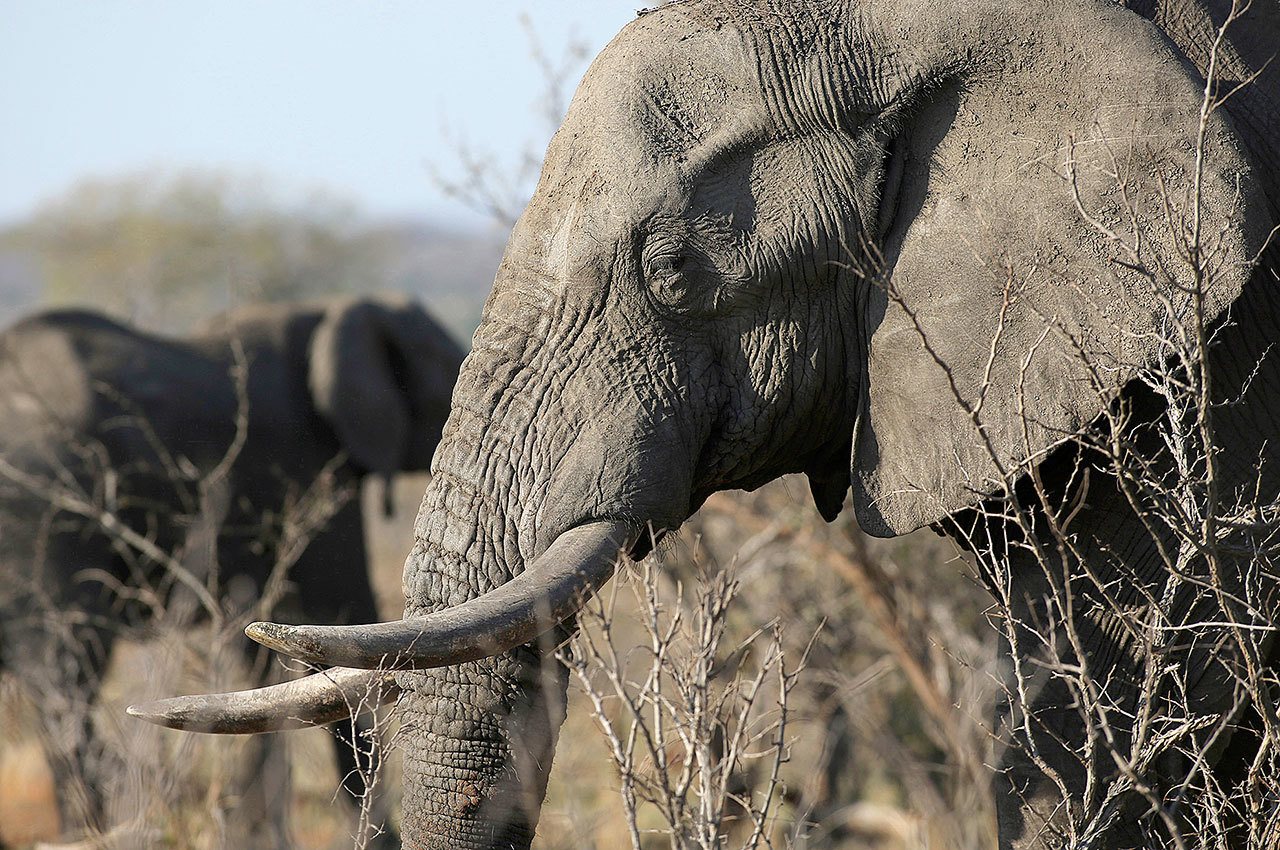Los Angeles Times
JOHANNESBURG — In Africa, an elephant is killed for ivory every 26 minutes on average, much of it to supply China’s voracious market. But China on Friday cemented a timeline to help reduce the carnage, pledging to close down its domestic ivory market within a year.
Trade in ivory was banned internationally in 1989, but a loophole allowed southern African countries to hold occasional legal sales of their ivory stockpiles. In 2008, China was given permission by the Convention on International Trade in Endangered Species of Wild Fauna and Flora, the international body that regulates the trade in wildlife, to buy ivory legally from several southern African countries.
The move, which was supposed to reduce elephant poaching, was instead followed by a boom. Analysts say legal ivory markets often act as a cover for poached ivory, citing the problems determining which ivory is legal and which is illegally trafficked.
Across Africa, the population crashed by 30 percent or around 144,000 elephants in the seven years from 2007 to 2014, according to the Great Elephant Census, a continent-wide count of elephants released in August.
In June, China and the U.S. — another significant consumer of ivory — announced they would ban the domestic ivory trade. In September, both nations agreed to cooperate in enacting the ban, including a ban on ivory trophies.
China will shut down domestic ivory carving workshops and factories by April. It will phase out registered traders and processors by the end of 2017.
A notice by the powerful State Council said the move would “strengthen the protection of elephants and crack down on the illegal ivory trade.” The council urged law enforcement officials to take a tougher stance on the sale, transport and smuggling of ivory.
The move represents a remarkable about-face from only a few years ago, when the Chinese government considered ivory carving an important cultural industry worth protecting.
China’s demand for ivory has been steadily dropping in recent years, the result of rising environmental awareness, a wide-ranging crackdown on official corruption, and a promise from President Xi Jinping last year to ban the trade.
Lo Sze Ping, head of the World Wildlife Fund-China, welcomed China’s move to close down its ivory trade swiftly, and praised its leadership in taking steps to try to reduce domestic demand for ivory.
“Closing the world’s largest legal ivory market will deter people in China and beyond from buying ivory and make it harder for ivory traffickers to sell their illegal stocks,” he said. “China and the U.S. have shown how quickly markets can be addressed, and the sooner the better for Africa’s elephants.”
The average wholesale price of ivory dropped from $2,100 per kilogram to $1,100 between 2014 and 2015, according to the organization.
But Ping said the ban wouldn’t stop poaching if demand for illegal tusks persists. He added that it was important to continue to raise public awareness in China about elephant poaching and to keep up efforts to cut domestic demand for ivory trinkets.
According to the World Wildlife Foundation, poaching peaked at 30,000 a year in 2011 before easing to its present level of 20,000 annually.
“I am very proud of my country for showing this leadership that will help ensure that elephants have a fighting chance to beat extinction,” Aili Kang, Asia Executive Director at the Wildlife Conservation Society, said in a statement. “This is a game changer for Africa’s elephants.”
Kenya, whose economy relies heavily on wildlife tourism, burned 105 tons of ivory in April, the world’s biggest ivory burn, designed to send a message that there should be never again be a legal trade in ivory. But other countries in Africa, notably South Africa, Zimbabwe and Namibia, maintain large ivory stockpiles.
At a CITES meeting in Johannesburg in October, 29 African countries proposed a total ban on ivory while Zimbabwe and Namibia proposed reopening the ivory trade. Those proposals were defeated in favor of a compromise agreement by 183 countries to shut down domestic ivory markets in countries that contributed significantly to ivory poaching or illegal ivory trade.
Under CITES, 19 African and Asian countries implicated in illegal ivory trafficking have to produce action plans to demonstrate steps they are taking to eliminate the trade.
Hong Kong authorities announced last week they would shut down ivory processing and trade, but only in 2021, creating a potential loophole for traffickers. A World Wildlife Foundation feasibility study estimates Hong Kong could take action within two years.
WildAid, a conservation organization in San Francisco, said in a statement last week that organized crime syndicates in Hong Kong “have been running illegal wildlife products through this city with impunity for decades. To date, not a single kingpin has been arrested to date for running serious and organized wildlife trafficking syndicates that are driving iconic species towards extinction.”
Another major transit point for illegal wildlife products into China is Vietnam, where authorities have turned a blind eye to the booming trade. Corruption by government officials in African source countries and African destination countries has allowed the trade to flourish. According to a report this year by Save the Elephants, Vietnam has seen a larger increase in illegal ivory carvers than any other Asian country since 2008.
“There appears to be little law enforcement within Vietnam against the illegal ivory workshops and retail shops, especially in the smaller locations that few Western foreigners visit,” the report found.
According to the elephant census, high numbers of elephant carcasses were found in national parks and protected areas, with “staggering declines” in Mozambique, Tanzania and Angola.
Poachers killed about half the elephant population in Mozambique in just five years, according to the census. Elephants had been all but wiped out in Cameroon, the Democratic Republic of Congo and parts of Zambia.
Talk to us
> Give us your news tips.
> Send us a letter to the editor.
> More Herald contact information.

























